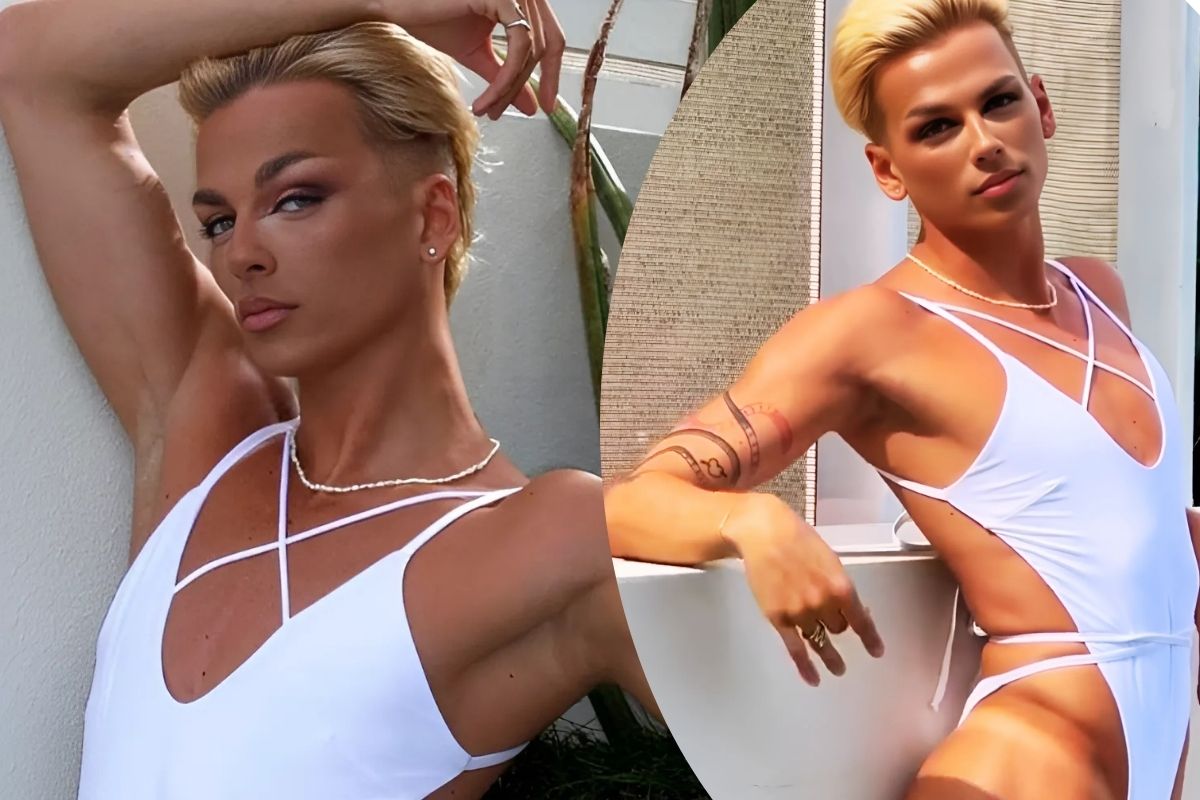How Australian Company Criticized for Featuring Male Model in Women’s Swimsuit Campaign

An Australian swimwear company known for advocating body positivity and inclusivity, Moana Bikini Male Model, has been swept up in a social media storm. The brand owned by influencer Karina Irby has faced criticism for a new promotional video in which they feature male model Jake Young in light of the video advertising their latest swimwear range. The video, which featured the Instagram handle@moanabikini and was posted on Jan. 20 to Moana Bikini Male Model, official Instagram page, showed Young wearing a $130 white one-piece bathing suit in small, the caption reading “OBSESSED WITH THIS LOOK.”
Although the brand’s intent for inclusivity is in line with its decades-old ethos, the campaign has caused a rift in public opinion and has drawn both backlash and applause from users on various social media outlets.
Table of Contents
ToggleCriticism Highlights Deepening Divide on Representation
The Instagram post prompted a barrage of comments, many of whom expressed disappointment with the decision to show a male model in women’s swimwear. Critics expressed concerns over the campaign’s effect on women’s spaces, identity, and fashion.
One user wrote, “Men appear to be attempting to take over all women’s sacred. “Our safe spaces, our identity and now our fashion.” Another commenter called the campaign “horrible marketing,” and asserted that it did not align with the brand’s emphasis on empowerment.
Many others expressed similar sentiments, saying that the campaign undermined female empowerment by apparently giving “men the power over us and saying they do it better.” A few people also revealed that they planned to unfollow the brand, indicating that some of its customers no longer trusted it.
Karina Irby Hits Back, Adopting a Strong Approach to Inclusivity
Karina Irby, the founder of Moana Bikini and an outspoken proponent of body positivity, didn’t avoid commenting on the backlash. In a direct response within the comment thread, Irby defended the campaign, claiming that Moana Bikini has led the way in inclusivity and body empowerment since it was founded in 2011.
“This video shouldn’t shock you at all at all.” (If you have to announce your ‘anger,’ I highly recommend you listen to — YOU NEED TO CALM DOWN by Taylor Swift because I have a strong feeling that song was written for you,)” Irby said in defence of the brand’s move.
The model who was featured, Jake Young, also responded to the controversy. Young, recognizing himself as part of the campaign, stressed how important representation is for underrepresented communities. “Women are of many kinds. Women who have different anatomy than what’s considered ‘normal.’ I am neither female nor have claimed to be female. This post is literally empowering a minority, and I will be always thankful for that,” he said.
Supporters Hail Strong Move for Inclusion
While the campaign has faced plenty of backlash, it has also received much praise for its forward-thinking approach to fashion marketing inclusivity. Fans praised Moana Bikini Male Model for breaking with conventional beauty standards in its marketing and embracing diversity.
Another supporter wrote, “It’s about time! Inclusivity means everyone being represented, and this campaign is doing just that.” One other commenter wrote, “Fashion should be for everyone. This campaign proves that confidence and style are not exclusive to one gender.”
These endorsements reveal an increasing demand for diverse representation in the fashion industry, particularly among young, more progressive audiences.
Why Inclusivity is Key in Authentic Modern Marketing
The campaign from Moana Bikini highlights a wider changing of tides in marketing strategy, as brands increasingly look to embody so-called values of diversity, equity and inclusion. And while that resonates with many, it also begs the question of the balance between inclusivity and brand identity, especially when targeting a primarily female customer base.
Experts say working through such issues demands a firm, steady endorsement of core brand principles. “Inclusivity shouldn’t be a reactive strategy; rather it should be an extension of a brand’s ethos.” When the transition becomes so far removed from Generation brands, transparency and open dialogue with consumers are critical if they want to mitigate any backlash,” says a marketing consultant who specializes in campaigns based on diversity.
Effect of Moana Bikini on its reputation
As Moana Bikini Male Model responds to this controversy, the company’s actions will likely determine its reputation going forward. The brand’s firm stand on promotoing inclusivity may strengthen its stock among progressive audiences, even as the stance threatens to distance it from more traditional slices of its customer base.
The fashion industry, a bellwether for societal change, still struggles with how to respond to a changing consumer. Campaigns like Moana Bikini’s reflect both the potential rewards and the risks of embracing diversity in a polarized culture.
Conclusion
Moana Bikini Male Model campaign has sparked an important conversation about inclusivity and representation in fashion. And while the backlash speaks to ongoing tensions around gender and identity, the brand’s response reaffirms its commitment to empowering a variety of bodies. The final result of this particular controversy will probably come down to whether Moana Bikini can adapt to the requirements of modern branding during a time of increasing cultural divides.
Published by Amanda Mills
I’m a Web Designer, Freelance Writer, and Digital Marketer with a study background in Logic, Philosophy, and Journalism. I’ve always had an unwavering passion View more posts







